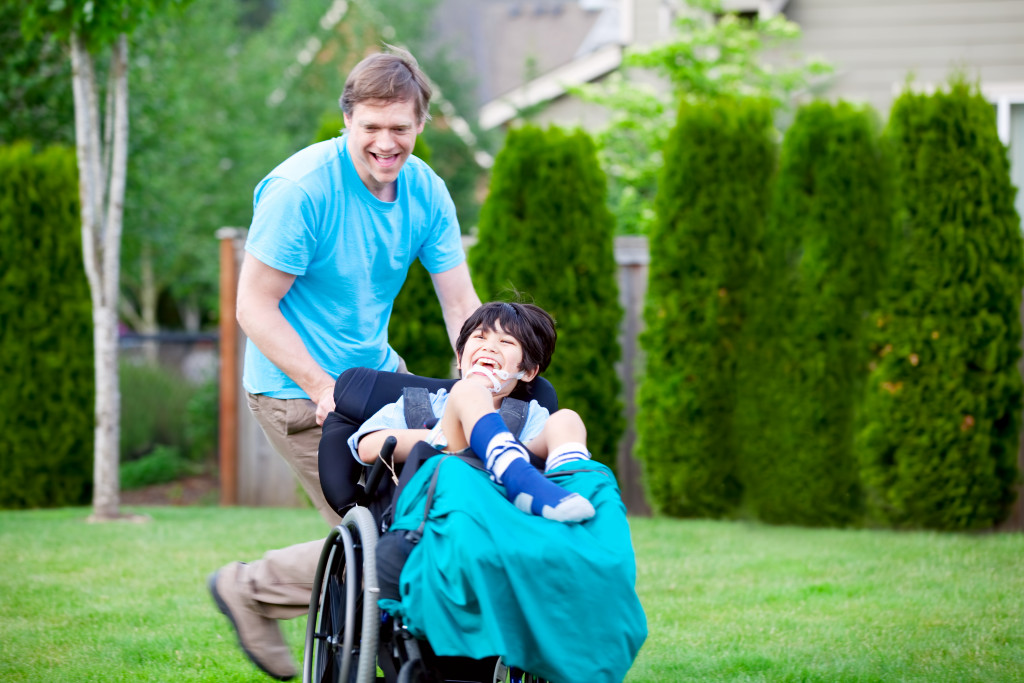We might have known the feeling of having some mobility issues in certain parts of our lives. May it be a sprain or broken bone, having problems with moving can affect our physical and mental health. However, some people out there have to experience these mobility issues for extended periods in their lives, with some who have to contend with it for the rest of their lives.
Mobility issues are a primary concern in the U.S. because everyone is vulnerable to them. Some get it through disease, while others get it from accidents and other events. Caring for someone with mobility issues, whether permanent or temporary, is no easy task. It is a complicated process and one that requires some research.
This article will help you gain the knowledge you need to take care of someone with mobility issues. The first thing you need to know is that mobility issues impair the body and the mind.
A Holistic Problem
Mobility issues affect the way we view ourselves and other people. Not a lot of people enjoy getting help from others every day. We don’t like being and feeling like dead weight. We also do not like radical changes in the way we live our lives. Some people know they can prepare for the mental issues that come with their eventual immobility. For example, people with arthritis in their family are likely to cope with it than those who are not aware that they will get arthritis in the future. However, this doesn’t mean that they are invulnerable to the mental issues that come with immobility.
People that come out with mobility issues due to accidents are likely to develop depression and anxiety. These mental issues drastically increase when they are exposed to stress or many responsibilities before. The drastic stop to the way they live their lives can be a serious hindrance to their recovery.
If someone in your family or circle of friends is currently experiencing some mobility issues, you must support them. Be there for them, and listen to their story without judging. Hang out with them whenever you can. These things are usually enough for them to feel better about themselves, and that’s a great help for people trying to recover from mobility issues.
Tools and Equipment
Another way you can take care of those experiencing mobility issues is by giving them the tools and equipment to make their lives a lot easier. Here are some essential mobility aids:
- Cane or walker. This is essential for those who are experiencing diseases like arthritis. This helps alleviate pressure from the legs and ankle, which experience excruciating pain for people who have arthritis.
- Wheelchair. This is essential for anyone who has been through a major accident. It can help them move around until they’ve recovered.
- Risers. Risers in chairs and sofas are essential for the elderly. This alleviates any pain they experience when standing up from a sitting or lying down position.
Investing in these tools and equipment can make a lot of difference for people experiencing mobility issues. Moreover, the autonomy these aids provide can help them regain the lost confidence they have from their illness.

Home Remodeling
Home remodeling is not necessarily crucial for people who can recover their lost mobility. But it’s crucial for those who will have mobility issues for the rest of their lives. It’s also vital for those who live in homes with one or two seniors.
Here are some things you need to keep in mind when remodeling your home:
- Grab bars
- Removing rugs
- Declutter
- Better lighting
- Ramps
These are just some remodeling ideas that will make your home a lot friendlier to people with mobility issues. Additionally, this will reduce accidents such as falling among the elderly as well.
Home Care
Lastly, you should not be afraid to get professional help if you don’t know what to do. A home care service can help monitor people who have serious mobility issues in your home, especially those who have reached the age of seniority. This is particularly helpful if you have to go out of work every day.
The agency can send out their professionals when you need it. This can stop accidents from happening and keep the patient occupied. It can also help hasten the recovery process.
Many people are experiencing mobility issues in the U.S. Understanding them and being there for them is as important as physical care. Be by their side, and do your best to care for them always.